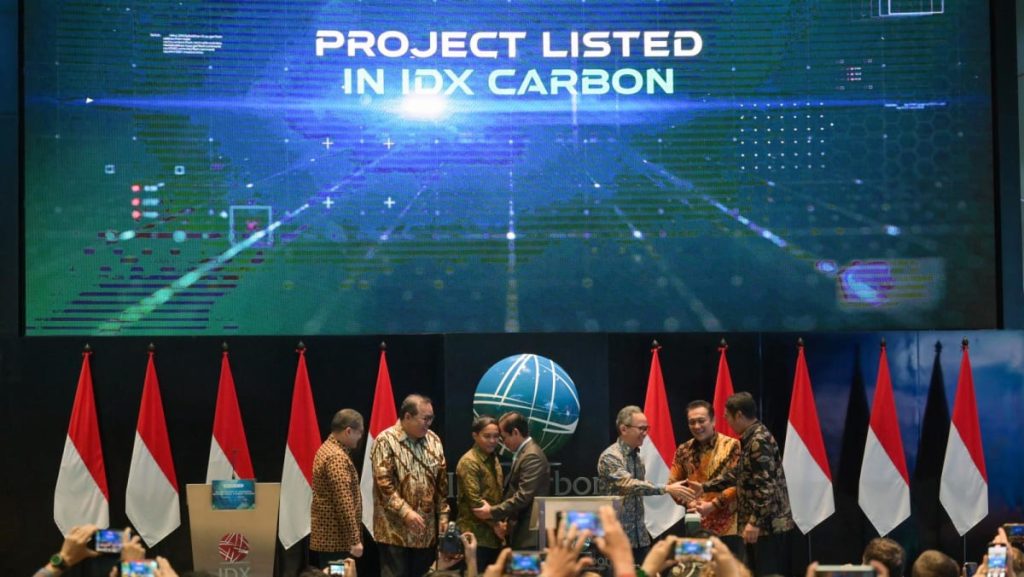Indonesia’s recent launch of a carbon exchange, open to both domestic and international participants, marks a significant step in the country’s efforts to leverage market mechanisms for climate action. The move follows the establishment of guidelines for international carbon credit trading during the COP29 climate summit, signifying a growing global acceptance of carbon markets as a tool to mitigate climate change. This exchange, operating under the Indonesia Stock Exchange, aims to facilitate the buying and selling of carbon credits, representing verified reductions or removals of greenhouse gas emissions. The Indonesian government has pledged to guarantee the integrity of every credit traded on the exchange, implementing stringent oversight to prevent issues like double counting – a critical consideration given the historical challenges and controversies surrounding carbon markets. This initiative represents Indonesia’s commitment to participate in the global carbon market and contribute to its own emissions reduction targets.
The establishment of the carbon exchange follows a period of increased scrutiny and criticism directed at carbon credit schemes globally. Revelations of inaccurate accounting practices and instances of outright fraud have eroded public trust in some carbon offsetting projects. Concerns have been raised about the actual environmental impact of these schemes, with questions surrounding the “additionality” of projects – the principle that carbon credits should only be awarded for emissions reductions that would not have occurred otherwise. Determining additionality often involves complex counterfactual analysis, attempting to model a scenario without the carbon credit project, creating opportunities for manipulation and raising doubts about the true climate benefits. This backdrop of skepticism underscores the challenges Indonesia faces in establishing a credible and transparent carbon market that can attract both domestic and international investment.
While the Indonesian government’s guarantee of the credits and commitment to rigorous scrutiny are positive steps, some experts remain cautious. The limited success of the pre-existing domestic carbon market, which has seen relatively low trading volumes, raises questions about the potential demand for credits on the new international exchange. Critics argue that the necessity to open the market to foreign entities suggests a lack of robust domestic demand. This could indicate underlying structural issues within Indonesia’s carbon market, potentially related to pricing mechanisms, project availability, or regulatory clarity. Furthermore, the alignment of the exchange with Indonesia’s broader emissions reduction strategy remains a point of contention, with concerns that the exchange may not effectively contribute to the country’s overall climate goals.
The issue of “additionality” continues to be a central concern surrounding the Indonesian carbon exchange. Establishing that emission reductions or removals are directly attributable to the projects generating the credits is crucial for the market’s integrity. The complexity of proving additionality, often requiring counterfactual analysis of hypothetical scenarios, creates inherent challenges. Critics argue that the lack of clarity regarding the additionality criteria employed by the exchange raises concerns about the environmental integrity of the traded credits. Furthermore, the compatibility of these credits with standards established by other countries and international carbon markets remains uncertain, potentially limiting their acceptance and marketability on the global stage.
Despite the skepticism and challenges, the initial trading activity on the Indonesia carbon exchange has shown some promise. The first day of operation witnessed several transactions totaling over 41,000 tonnes of carbon dioxide equivalent. While this initial volume represents a small fraction of Indonesia’s overall emissions, it signifies a concrete starting point for the exchange. The long-term success of the exchange will depend on addressing the concerns surrounding additionality, transparency, and compatibility with international standards. Building trust among both domestic and international participants will be crucial to attracting significant investment and driving meaningful emissions reductions.
The Indonesian carbon exchange represents a bold experiment in leveraging market forces to address climate change. The government’s commitment to guaranteeing the integrity of the credits and implementing strong oversight provides a framework for promoting transparency and accountability. However, the exchange faces significant hurdles, including overcoming the legacy of skepticism surrounding carbon markets, addressing the complex challenge of proving additionality, and ensuring compatibility with international standards. The long-term success of this initiative will depend on whether it can effectively address these concerns and attract sufficient participation to drive meaningful reductions in greenhouse gas emissions. The development of the Indonesian carbon exchange will be closely watched by other countries considering similar market-based approaches to climate action, offering valuable lessons on the potential and challenges of utilizing carbon markets to achieve global climate goals.

